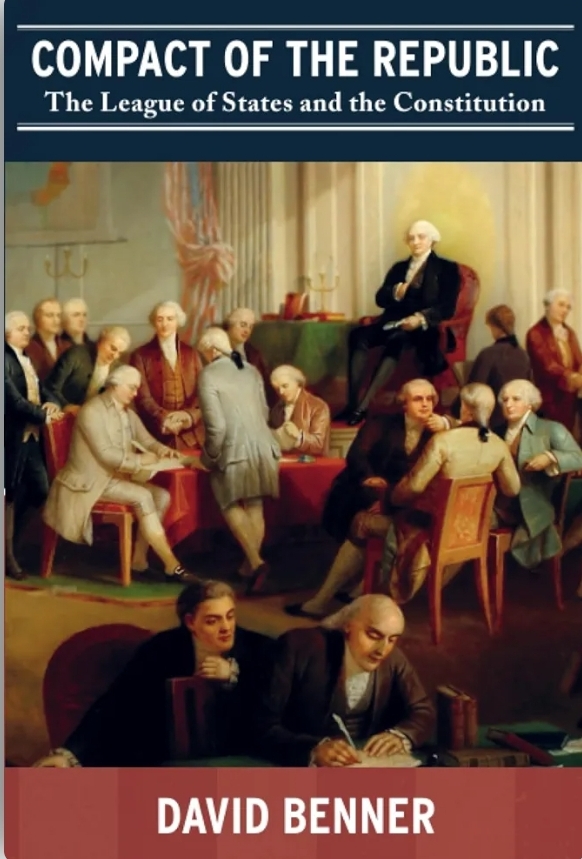David Benner’s Compact of the Republic: The League of States and the Constitution is a detailed exploration of the United States Constitution from a states’ rights perspective. Benner delves into the original understanding of the Constitution as a compact or agreement between sovereign states, arguing that this interpretation has been largely forgotten or distorted over time. The book provides a historical and constitutional analysis of how the federal government was intended to operate in a decentralized manner, with significant power reserved for the states.
Key Themes and Concepts:
The Constitution as a Compact of States: Benner emphasizes that the U.S. Constitution was seen by many of the Founding Fathers and early political leaders as a compact between sovereign states. According to this view, the federal government was created by the states and was intended to have limited powers, with the states retaining most of their sovereignty and authority. Benner argues that this understanding of the Constitution was central to the founding period but has been eroded over time.
The Role of State Sovereignty: A major theme in the book is the importance of state sovereignty and the idea that the states should serve as a check on federal power. Benner examines how the Tenth Amendment, which reserves powers not delegated to the federal government to the states, reflects this principle. He argues that the framers of the Constitution intended for the states to play a vital role in guarding against federal overreach.
Historical Context and the Founders’ Intentions: The book offers a deep dive into the Constitutional Convention of 1787 and the debates that shaped the final document. Benner draws on the writings and speeches of key figures like James Madison, Thomas Jefferson, and Alexander Hamilton to argue that the Founders intended for a decentralized system of governance. He also covers the Articles of Confederation, which preceded the Constitution, to highlight how the Constitution was designed to preserve many of the same principles of state autonomy.
Nullification and Secession: Benner addresses two controversial ideas that have been associated with the compact theory of the Constitution—nullification and secession. Nullification is the idea that states have the right to invalidate federal laws they deem unconstitutional, while secession refers to the right of states to withdraw from the Union. Benner explores the historical basis for these concepts and how they were viewed by the Founders, arguing that they were seen as legitimate tools to protect states’ rights.
The Erosion of States’ Rights: Benner contends that over time, the federal government has significantly expanded its powers at the expense of the states. He argues that this has happened through a combination of Supreme Court rulings, federal legislation, and executive actions that have centralized power in Washington, D.C. Benner critiques modern interpretations of the Constitution that favor a strong national government, suggesting that they are inconsistent with the original understanding of the document.
Restoring the Compact: The book concludes with a call to restore the original understanding of the Constitution as a compact between sovereign states. Benner argues that this would involve returning power to the states and limiting the scope of the federal government. He suggests that this approach would create a more balanced and just political system that respects the diversity and autonomy of the states.
Significance:
Benner’s work is significant for readers interested in the states’ rights movement and those who advocate for a more decentralized federal system. It provides a thorough historical and legal argument for viewing the Constitution as a compact, rather than a document that establishes a dominant central government. The book is also relevant for those interested in constitutional history, federalism, and the ongoing debate over the balance of power between the federal government and the states.
Conclusion:
Compact of the Republic offers a compelling interpretation of the Constitution that challenges the modern understanding of American federalism. By focusing on the Constitution as a compact between states, Benner provides a fresh perspective on the original intentions of the Founding Fathers and the role of state sovereignty in the American political system. The book serves as both a historical analysis and a call for a return to a more decentralized form of governance.







